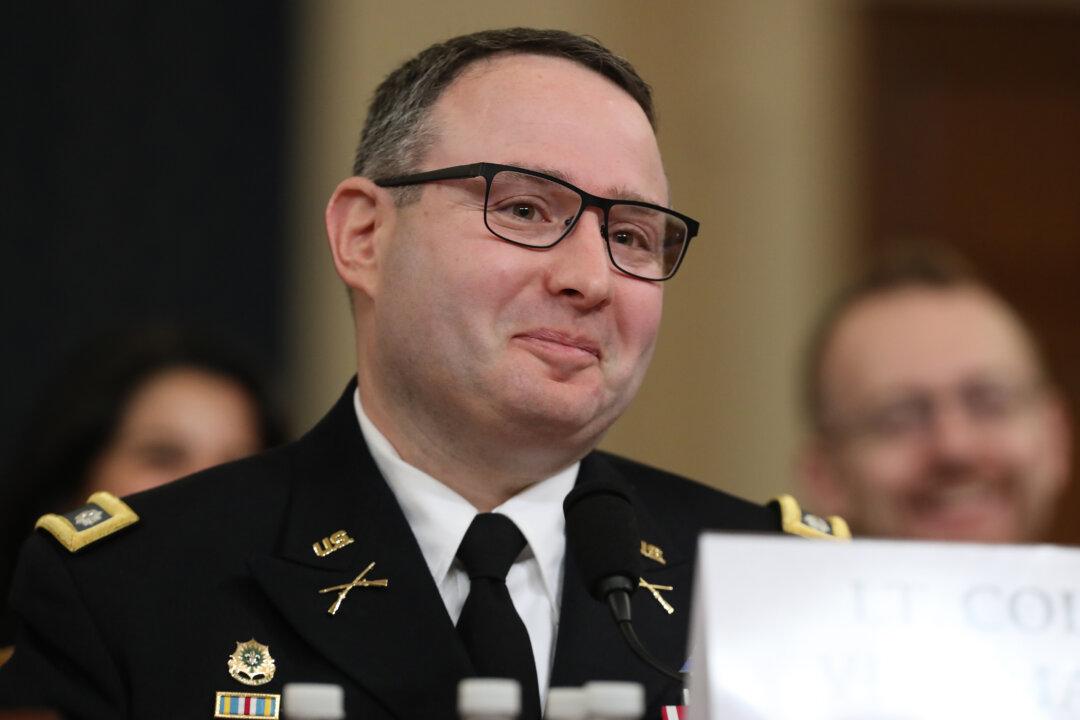White House officials on Tuesday issued a response to Lt. Col. Alexander Vindman’s testimony in the House impeachment inquiry, saying he had nothing more than disagreements on policy in Ukraine, as the White House sets policy “not unelected bureaucrats.”
Vindman, who serves on the National Security Council, told the House Intelligence Committee that he was worried by the Trump administration asking Ukraine to investigate former Vice President Joe Biden and Ukraine’s role in alleged 2016 election meddling.





